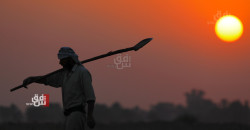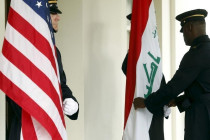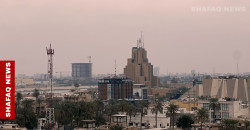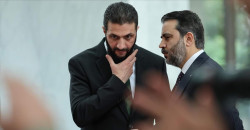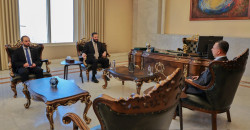2025: A storm of challenges in Iraq
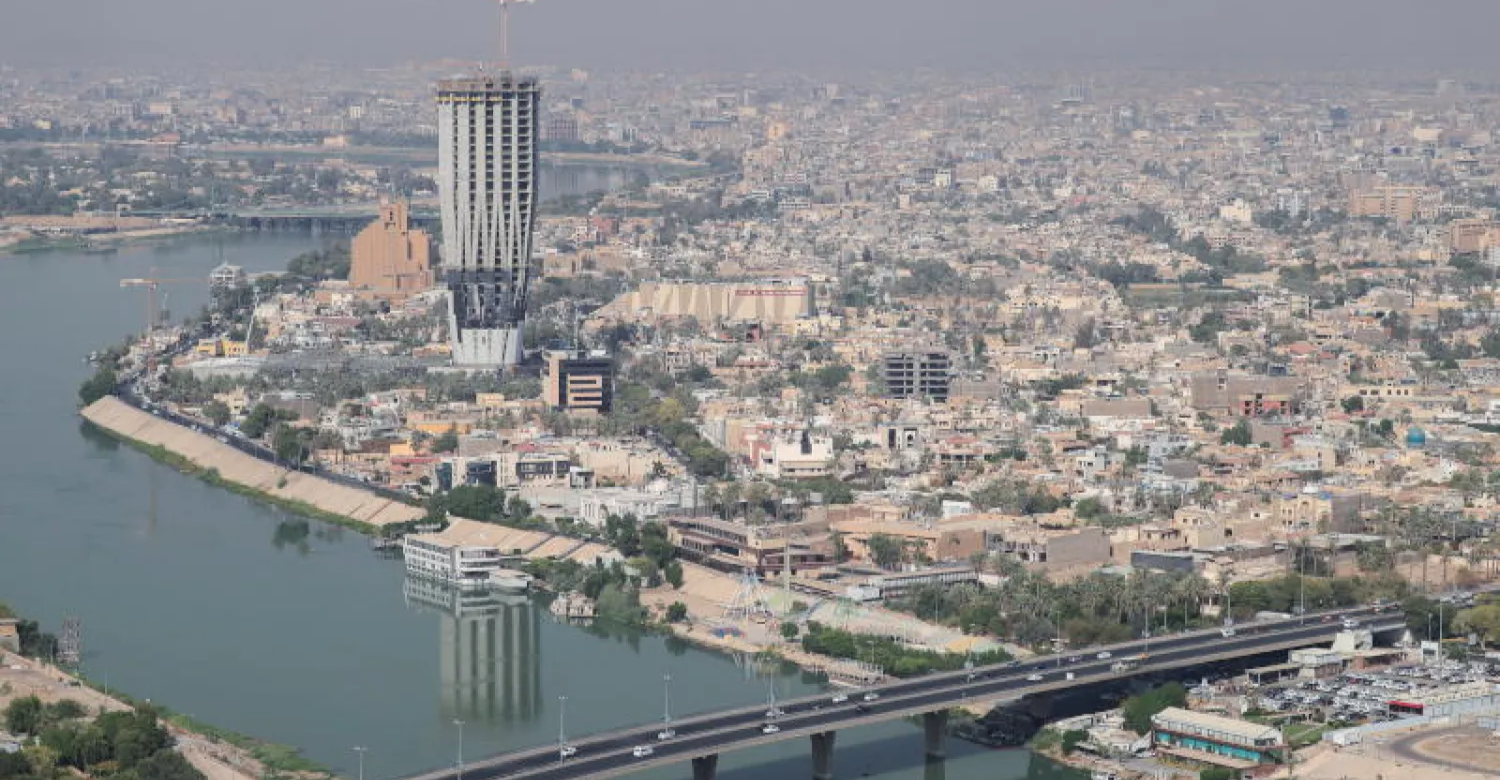
Shafaq News/ Alongside its "routine" challenges, Iraq faces remarkable and unprecedented concerns as it enters 2025. The country is struggling with escalating political tensions, deepening security threats, and looming economic uncertainties, each presenting a formidable challenge to its stability and resilience.
Political Challenges
Political analyst Aqil Abbas warned of "major and alarming challenges" in 2025, particularly the anticipated shift in US policy under a new administration. "The incoming Trump administration views Iraq with skepticism, treating it less as an ally and more as a potential adversary—possibly even as part of Iran’s sphere of influence," Abbas told Shafaq News.
He described this as an unprecedented test for Iraq’s political class, who are unprepared for possible economic and punitive measures that could severely harm the country.
Abbas emphasized the urgency of "political reform, reducing Iranian influence, and consolidating state authority over arms" to present Iraq as an independent entity, rather than a component of broader regional projects.
Political analyst Saif al-Saadi added that Iraq faces a critical juncture with Trump’s inauguration on January 20, 2025. The new administration’s plans for the Middle East, including the notion of a "New Middle East," could heavily impact Iraq.
Baghdad’s strained history with Trump, especially following the US assassination of Iranian General Qassem Soleimani near Baghdad airport, exacerbates concerns. The incident led to heightened tensions and an Iraqi arrest warrant for Trump.
While some analysts hope for improved ties, signs indicate that Iraq may remain a secondary priority for Trump, focused primarily on countering Iranian influence.
Lebanese analyst George Alam views Iraq as part of a broader roadmap for the region under the "New Middle East" framework. He urged Iraqi political factions to “unify and curb external interference” to navigate the country through these challenges.
Another political challenge is holding parliamentary elections in 2025, a constitutional mandate outlined in Article 62.
However, calls for early elections have gained momentum, particularly from the Sadrist Movement, led by Muqtada al-Sadr. Observers are debating whether these demands aim to pressure Mohammed Shia Al-Sudani’s government or to reset the political landscape.
Al-Saadi suggested that “the desired changes should come through the ballot box, not revolutionary upheaval.”
Many voices in Iraq are pushing for electoral reforms, arguing that the current system fails to reflect true public representation and marginalizes smaller parties and independents.
Contentious legislative issues, including the Amnesty Law, Personal Status Law, and Property Restitution Law, also remain unresolved due to deep divisions among Shiite, Kurdish, and Sunni factions.
Efforts to pass these laws as a package have only intensified disputes.
Security Challenges
Iraq faces two primary security threats in 2025: the resurgence of ISIS and potential conflict arising from tensions between Israel and armed resistance factions in the region.
While Iraq has made strides in reducing ISIS's territorial control in recent years, the group remains a potent threat. Despite being largely defeated in 2017, the terrorists continue to operate through sleeper cells, particularly in the northern and western regions of Iraq.
These cells, often operating in the border regions with Syria, exploit security gaps in rural areas and mount occasional attacks on military and civilian targets.
In the first half of 2024 alone, ISIS claimed responsibility for over 100 attacks, targeting Iraqi security forces, infrastructure, and even civilians.
Experts predict that ISIS will continue to exploit the political and security vacuum in Syria, seeking to cross into Iraq to destabilize the country.
The group’s shift from conventional warfare to guerrilla tactics makes it difficult for the Iraqi government to fully eradicate its presence.
Meanwhile, Iraq’s security apparatus faces the growing challenge of armed resistance groups operating within its borders, some of which have ties to Iran. These groups, which played a pivotal role in the fight against ISIS, have become increasingly powerful and independent from the Iraqi state.
While many of these groups align with the Iraqi government's broader goals, their lack of formal integration into state-controlled military structures poses significant risks. These groups are heavily armed and have amassed military capabilities. Their independent actions, such as rocket attacks on US interests and involvement in regional conflicts, have drawn international concern.
As tensions with the US remain high, particularly following the assassination of Iranian General Soleimani, analysts expect increased pressure on Iraq to rein in these factions.
The Biden administration has already signaled that it will push for Iraq to disarm these groups or risk facing additional sanctions.
Ghalib al-Daami, a political analyst, predicts that US pressure in 2025 will intensify, especially if resistance groups continue to act autonomously or target US assets in Iraq.
A failure to rein in these groups could provoke US military strikes, further destabilizing Iraq’s already fragile security situation.
Additionally, the risk of a broader regional conflict looms large. The rising tensions between Israel and various armed groups, such as Hezbollah in Lebanon and Palestinian factions in Gaza, could spill over into Iraq, especially given the presence of Iranian-backed forces in the country.
Should these groups escalate their operations, Iraq could find itself caught in a wider conflict. The US is likely to push Iraq to prevent its territory from being used as a launch pad for attacks on Israeli targets, which could strain Iraq’s diplomatic position and its ability to maintain internal security.
The potential for widespread instability also remains high due to internal divisions within Iraq’s security forces. While the Iraqi military has been successful in countering ISIS, it remains divided along sectarian lines, which hampers effective coordination.
The integration of various paramilitary groups, many of which are linked to political factions, further complicates Iraq's ability to maintain a unified security strategy.
In the face of these complex security dynamics, Iraq will need to bolster its national security infrastructure, reform its military apparatus, and work toward eliminating sectarian divides within its security forces to avoid further instability in 2025.
Economic Challenges
On the economic front, Iraq’s heavy reliance on oil revenues—over 90% of state income—leaves it vulnerable.
Former US President Donald Trump’s plans to end conflicts, including the Russia-Ukraine war, could lead to Russia’s full return to global oil markets, triggering a supply glut and a sharp drop in oil prices.
"This would severely impact Iraq’s revenues, creating a remarkable budget deficit," al-Daami warned. He urged the government to diversify its income sources and invest in non-oil sectors.
Additionally, recent fluctuations in the exchange rate further compound the country’s economic instability.
In 2024, the Iraqi dinar weakened significantly against the US dollar, dropping by nearly 10% in some months. This depreciation has led to increased import costs, driving up prices for everyday goods and causing higher inflation, which directly impacts the purchasing power of ordinary Iraqis.
The parallel currency market remains highly volatile, with the black market exchange rate sometimes diverging by as much as 15% from the official rate.
Moreover, Iraq's energy sector remains a critical issue. Despite efforts to reduce dependency on Iranian gas, the country’s electricity supply continues to be insufficient, with power outages often exceeding 12 hours per day in some provinces.
In 2024, Iraq’s electricity generation capacity was estimated to be around 18,000 megawatts, while demand during peak summer months can soar to over 25,000 megawatts.
The shortfall is exacerbated by outdated infrastructure, inefficient distribution, and an ongoing reliance on Iranian gas, which makes up 40% of Iraq’s energy imports. As a result, efforts to improve energy independence through agreements with regional countries, such as Jordan, Saudi Arabia, and Turkmenistan, are seen as crucial in the coming year.
A Year of Continuity and Uncertainty
The trajectory of events in 2024 suggests that 2025 will continue along a similar path. The upcoming elections, security risks tied to developments in Syria, and Iraq’s role in regional dynamics will dominate the year. Amid this complex landscape, Iraq must strive to avoid a repeat of past crises while positioning itself as a stabilizing force in an increasingly volatile region.
